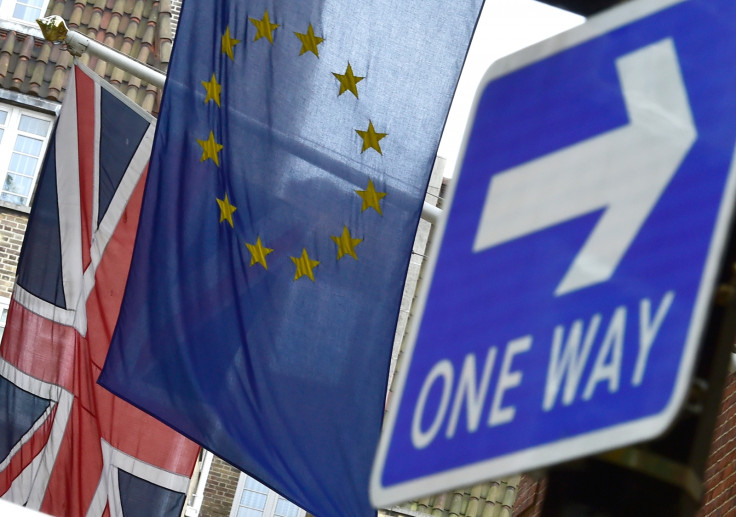EU referendum: These are the issues that will dominate the Brexit debate

Britain is preparing to vote on whether or not it should remain one of the 28 members of the European Union (EU).
The referendum will be held by the end of 2017 and is intended to put to bed the EU question for at least another generation. It is a question that has hung over British politics for more than two decades.
When Britons vote, they will be asked: "Should the United Kingdom remain a member of the European Union?"
These are the issues that will dominate the debate over what has been dubbed "Brexit".
Immigration
Immigration is probably the single biggest issue in the EU referendum debate. In 2013, 4% (2.5 million) of the UK population was of EU nationality other than the UK. One of the central tenets of the EU is the free movement of people within its member states. Since the late 1990s, as the EU expanded eastwards and took in poorer post-communist states such as Poland and Romania, there has been an influx of migrants to the UK. Many sought low-paid work, such as in the leisure and construction industries, to fund families back home or to pay for studies. Migrants have tended to cluster in poor urban areas and changed the face of some communities, a shift some Britons have struggled to cope with. Unemployment, poverty and low education and training are rife among poorer Britons. So EU migrants have been blamed for taking jobs, putting pressure on public services (particularly schools, hospital and housing) and crime – fuelling antipathy. This partly explains the rise of Ukip, a right-wing anti-EU party, which has found wells of popular support in working class areas. The EU will not alter its policy of the free movement of people. But there is agreement on tightening welfare rules for migrants as a means of discouraging and deporting those without work or the prospect of it. But those arguing to stay in the EU say that an open free market for labour is good for the economy. Businesses can plug skills gaps quickly and cheaply, meaning they can be more productive and profitable – so invest in job creation and growth. Moreover, the EU workers pay taxes in the UK, helping to fund public services. Studies show that, on the whole, EU migrants pay more into the system than they take out of it. To leave the EU would mean fewer jobs, not more.
Business
Business, on the whole, wants to be in the EU, so polling data shows. This is because half of all the UK's trade is done with the EU. The EU means big business. But they also want reform. In a drive to harmonise standards across the whole of the EU, swathes of regulation has been brought it, from product quality, to health and safety, to labour rights. Remember straight bananas and the 35 hour week? Those in favour of the EU rules argue that this is about protecting consumers and workers against the excesses of private enterprise. But business groups argue that much of the regulation is superfluous, expensive and burdensome, so it drives up prices, hinders growth and job creation, and stifles innovation. Prime Minister David Cameron is working to secure reforms that cut the red tape businesses say is strangling them. And there are rumblings from other EU states that streamlining business regulation should be a priority. But those opposed to the EU argue that bureaucracy is in the nature of the beast – and things won't change. So better to leave it altogether.
Economy
The EU is an internal market of 500 million citizens with a total GDP across all 28 member states worth €14tn (£10tn, $16tn). The member states within it are working, albeit slowly, to tear down barriers to trade between each other. That means capital, goods, people and eventually services will be able to move freely between borders. This increases competition, which is good for consumers. It also opens up new investment and job opportunities. But critics of the EU's economic project say it is an ideologically-driven push to privatise everything. Which is to some extent true. The EU is trying to liberalise all sectors of the economy. This is so all companies and member states can compete with each other fairly. That means getting rid of state subsidies and public ownership because they distort markets. But some people want public ownership. In the UK, the public overwhelmingly wants the rail sector, liberalised in line with EU rules, to be nationalised again amid rising prices and poor service. And some domestic lobby groups for industry favour protectionism against increased global competition, which they argue ends up in a race to the bottom.
Sovereignty
At the heart of the entire debate is sovereignty. Critics of the EU call Brussels an undemocratic bureaucracy that imposes law on its member states. They argue that the UK loses national sovereignty by being part of the EU because its domestic judiciary is subordinate to an overarching European system of justice. That is how the EU court of justice can overturn decisions of the UK court, such as in human rights cases. In order to be a member, the UK must hand over some political and economic control to Brussels. Therefore the UK should leave the EU so it can once again hold complete sovereignty over its own decision-making. But those in favour of the EU say ceding sovereignty is no bad thing. It gives the UK free access to a huge and valuable market. Even if the UK left, it would still have to adhere to European law to trade in the EU market – as well as pay fees. And the EU is not necessarily undemocratic – two of its three central bodies, the ones with decision-making power, are made up of elected politicians. Moreover, the very fact that the UK is having an in-out referendum on its membership of the EU shows that it retains ultimate sovereignty over itself.
© Copyright IBTimes 2025. All rights reserved.






















